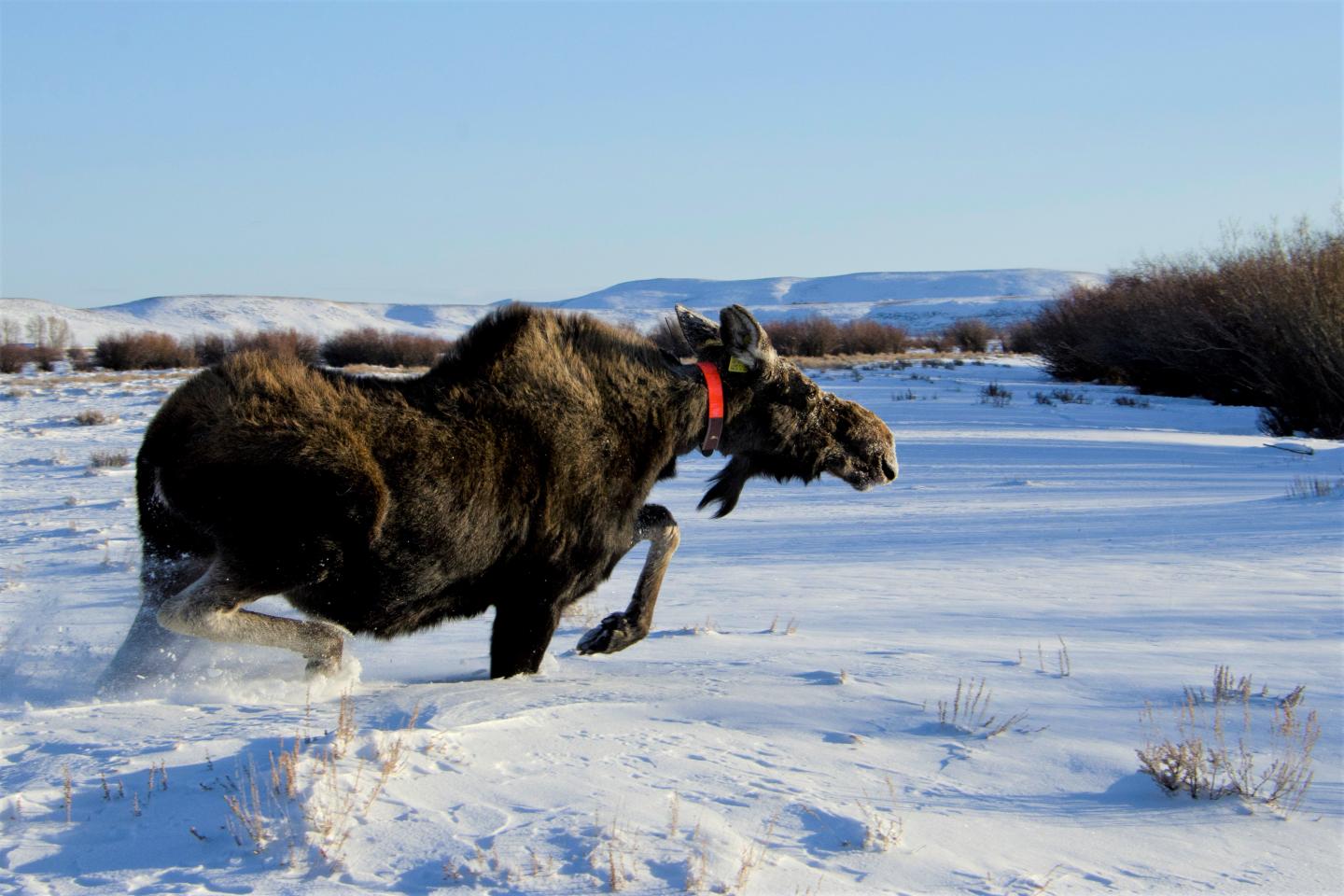
Credit: Mark Gocke
Driven by the need for food, moose in western Wyoming are less likely to change their behavior to avoid wolves as winter progresses, according to new research by University of Wyoming scientists.
The findings, published today (March 13) in the journal Ecology, provide new insights into the interactions of the region’s apex predators and their prey. The results also highlight the complexity of the relationships between wolves and big-game species, making it difficult to reach general conclusions about whether and how fear of wolves has impacted the ecosystem, the researchers say.
“We have known for some time that hungry animals will tolerate the presence of predators in order to forage and avoid starvation, and that phenomenon, called the ‘starvation-predation hypothesis,’ is supported by our research,” says Brendan Oates, now with the Idaho Department of Fish and Game, who conducted the research as a UW graduate student. “In this case, close proximity of wolves does cause moose to move, but not enough to drive them from their preferred habitats — especially late in the winter.”
Oates is the lead author of the Ecology paper. Co-authors include his UW advisers: Jake Goheen, associate professor in UW’s Department of Zoology and Physiology, and Matt Kauffman, a U.S. Geological Survey researcher based at UW. UW’s Jerod Merkle, assistant professor in the Department of Zoology and Physiology, also was involved with the research, as were agency personnel from the National Park Service and U.S. Fish and Wildlife Service.
The scientists tracked movements of dozens of GPS-collared moose and wolves in Grand Teton National Park and the Bridger-Teton National Forest over a five-year period, detecting 120 unique encounters among 25 individual moose and six wolf packs. An encounter was defined as when moose and wolves were within about 1,600 yards of each other.
They found that movements of moose increased in early winter following encounters with wolves, but only when wolves were within about 550 yards. Even then, the moose didn’t move from their preferred habitat, which is near streams and marshy areas. Late in the winter, when the moose were presumed to be hungrier, there was no change in the movement rates of the animals in response to wolves in the vicinity.
“The unwillingness of moose to abandon preferred habitats following encounters with wolves adds further support for the starvation-predation hypothesis,” the researchers wrote.
In contrast, previous research has shown that elk — the primary prey of wolves in the region — will move when wolves approach within about 1,000 yards, even during winter. Elk also move from their preferred habitat to avoid wolves. The difference may be explained simply by the fact that moose are larger than elk and are more likely to stand their ground when approached by wolves, the researchers say.
Additionally, the nature of moose’s preferred habitat — described as “structurally complex” — means it could serve as both a good food source and a refuge from wolves.
Still, it would be inaccurate to say that the presence of wolves doesn’t affect moose movements.
“Although moose may be generally less responsive to predation risk from wolves, our detection of a heightened behavioral response during early winter suggests that anti-predator behavior is dynamic within and among species of ungulates,” the researchers concluded.
###
Media Contact
Jake Goheen
[email protected]
Original Source
http://www.
Related Journal Article
http://dx.




